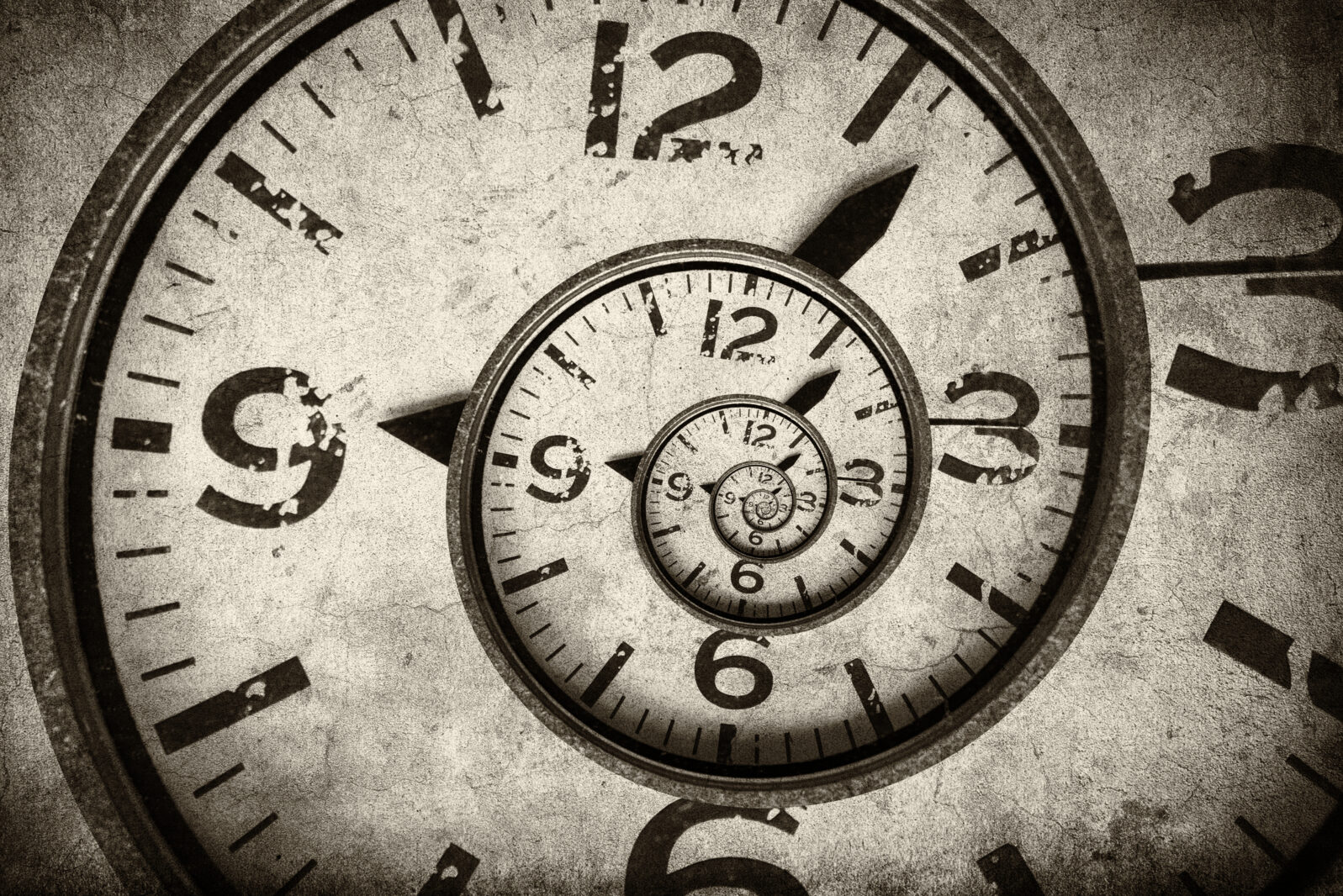Does Time Exist? That’s Not As Clear As We Might Think
We picture a clock when we think of time but, physicists note, that’s not how we experience it as living beingsMany of us might be surprised by the idea that there is an active debate in both science and philosophy about whether time exists. It helps to remember that in physics, time is one of four dimensions but it is an odd one because, unlike length, height, and width, it goes only in one direction. Philosophers gather around the mystery and some wonder if it is partly an illusion.
Maybe time doesn’t exist?
University of St. Andrews Giffords Postdoctoral Fellow Matyáš Moravec offers arguments, taken from an older British philosopher J.M.E. McTaggart (1866–1925), that time makes no logical sense. Here’s one:
 Image Credit: Quality Stock Arts -
Image Credit: Quality Stock Arts - You can create three piles of cards, where each card describes events. He suggests, for example, the death of Queen Victoria (1819–1901) for the left (past) pile. 2024 events are in the middle pile. Highly predictable future events like the 2026 solar eclipse are in the right pile.
Of course, as time passes, you must move cards. In 2026, you will move the eclipse card from the right pile to the middle one and then into the left pile of past events. But, as McTaggart pointed out,
Your hand moving the cards from the left-hand pile into the middle one and then into the right-hand pile is a process that already happens in time.
You need to be in time to be able to perform this arrangement. But time is exactly what you are trying to capture. In other words, you already need to have time in order to describe time. This is circular, and circularity violates logic.
Matyáš Moravec, “How logic alone may prove that time doesn’t exist,” The Conversation, April 15, 2024
You may not find this argument convincing. After all, time could exist even if it appears to violate logic. But we need to think carefully if we are going to argue the point. That’s part of the mystery of time.
Is the physics of time mistaken?
Some think there is a mistake at the heart of the physics of time. So say astrophysicist Adam Frank, theoretical physicist Marcelo Gleiser, and University of British Columbia philosopher Evan Thompson:
Clocks don’t reveal the true nature of time; they are tools invented to abstract certain aspects of the experiential flow of time and to measure them in a systematic way. Modern clocks are products of the scientific workshop, the collective effort of scientists and engineers to isolate aspects of experience and construct measurable invariants from them. But regardless of the precision of the clocks emerging from the workshop, our understanding of time remains rooted in duration, the irreducible experience of becoming.
Adam Frank, Marcelo Gleiser, Evan Thompson, “The mistake at the heart of the physics of time,” IAI.TV, April 15, 2024
In short, they say, as we delve into the atomic world, seeking ever more accurate timekeeping devices, our resulting understanding of time becomes ever more distant from what we really experience: “The more precise the clock, the more distant clock time seems to be from becoming, passage, and duration.”
Different approaches to time
Science writer Shayla Love personalizes the mystery of time by asking, “Do you stick to a set schedule, or have a looser relationship to the clock?” That can affect more than schedule planning, says Tamar Avnet, a professor of marketing at Yeshiva University in New York, in an interview with her for Psyche. Avnet distinguishes between clock-timers and event-timers:
Clock-timers rely more on external cues (such as calories) for deciding what to eat To assess whether someone is more of a clock-timer or event-timer, Avnet and Sellier will ask them about how they manage their schedules and tasks, including how much they agree with statements such as: ‘When I make a timetable for a task, I usually stick to it’ (a sign of being a clock-timer) and ‘I don’t mind how long it takes to complete a task as long as it is done well’ (an event-time attitude). One way of managing your time is not necessarily better than the other, but there are differences associated with each. Efficiency drives clock people, meaning they say their goal is to complete tasks in a set amount of time, and they say they value getting it done. If a clock-timer gives themselves two hours to finish a task, when the two hours are over, the work is over. For an event-timer, effectiveness is more the stated goal: they will finish working on a task when it feels like it’s completed. They value doing the job well, not finishing it at a certain point.
Shayla Love, Is it better to live in “‘clock time’ or ‘event time’?,” Psyche, April 30, 2024
Avnet notes that, while event-timers can be stereotyped as easy-breezy, they are often perfectionists in reality. She stresses that there is no one right way to approach time; people should go with what works.
 Image Credit: spaxiax -
Image Credit: spaxiax - Curiously, the COVID lockdowns often introduced people to a different approach to time from what they were used to, with mixed results:
During the COVID-19 pandemic, many people, suddenly working from home, were thrust into a situation that was more conducive to event time. They could manage their schedules more flexibly and do their tasks when it felt right, and for as long as needed. [research colleague Anne-Laure] Sellier thinks that this is one reason why many people are resisting going back to the office full-time: they were event-timers all along. (This applies only to people whose schedules actually became more flexible. A day full of Zoom meetings at designated times is still quintessential clock time.)
Love, “‘Clock time’ or ‘event time’?”
We can have whatever preferences work for us but still, as always, time and tide wait for no man.
